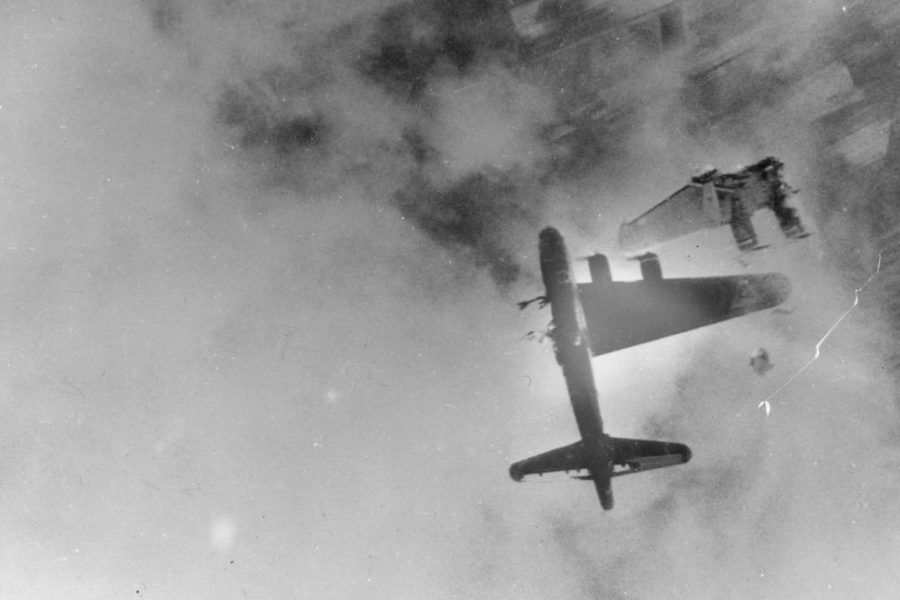Yesterday my friends at The American Spectator published the following article which recites a story my father shared with me just before his death in 1981.
Memorial Day — A Young Mother’s Perspective | The American Spectator
From my mother’s sleep I fell into the State,
And I hunched in its belly till my wet fur froze.
Six miles from earth, loosed from its dream of life,
I woke to black flak and the nightmare fighters.
When I died they washed me out of the turret with a hose.
— Randall Jarrell, “The Death of the Ball Turret Gunner,” 1945
Between 1942 and 1945, the Army Air Forces Training Command (AATC) requisitioned and occupied more than 300 hotels and apartment buildings in Miami Beach. It was there that nearly half a million men prepared for war. Many of them were destined for duty with the Eighth Air Force, which flew bombing missions over occupied Europe and Germany.
After the attack on Pearl Harbor, my father joined the Army. Since he was a dentist, he received a direct commission as a First Lieutenant and orders to report to the clinic at the AATC Miami Beach.
He, my mother, and my then-toddler brother were lodged in one of those requisitioned apartments.
At the clinic, he examined and treated U.S. and British trainees, many of whom had never been to the dentist. He recounted having to extract the few remaining teeth out of the mouths of many young recruits so that they could be fitted with dentures. “Imagine,” he would marvel in later years. “Eighteen-year-old kids with false teeth.”
One day in the clinic, he had his one brush with wartime fame when recruit Clark Gable popped out his denture so that one of my father’s colleagues could make an adjustment. (Think about that the next time you watch Rhett Butler show his pearly whites as he leers at Scarlett O’Hara.)
In the evenings, the recruits would form up into sections and march through the streets on their way to the mess hall. They would sing as they marched past the onlookers who lined the sidewalks.
Many years later, when he was in declining health and nearing his end, my father told me about coming home one evening from the clinic and finding my mother watching the young soldiers marching to dinner. She was holding my brother and weeping.
‘What’s wrong?” he asked.
“They’re just babies,” she sobbed. “They’re just babies and so many of them are going to die.”
He tried to reassure her. They were going to be flying B-17s and B-24s that carried heavy armament. They would be in close defensive formations with interlocking fields of fire. And so on.
“No,” she shook her head. “You’re wrong. The Army’s wrong. So many of those boys are going to die. So many mothers are going to lose their babies.”
When he told me this story, my father shook his head sadly. My mother had made her prediction before the Eighth Air Force’s astoundingly heavy losses of aircraft and crews. But it wasn’t long before the carnage started.
“She turned out to be right,” he rasped in a near whisper. “We shipped those kids out of there by the thousands, and half of them wound up scattered in pieces across Europe.”
Flying from bases in England, the Eighth Air Force suffered 47,000 casualties with 26,000 dead. By the end of World War II, over 410,000 members of the United States armed forces had died.
Since then, the death toll has mounted in Korea, Vietnam, Iraq, Afghanistan, and a score of less heralded places. And, in each conflict, the story has always been the same: young people sacrificing themselves for their country, their loved ones, and each other.
So many mothers bereaved.
So many babies lost.
Pause and think of them as you celebrate Memorial Day.
George Parry is a former federal and state prosecutor. He blogs at knowledgeisgood.net and may be reached by email at kignet1@gmail.com.




2 Comments
Leave your reply.